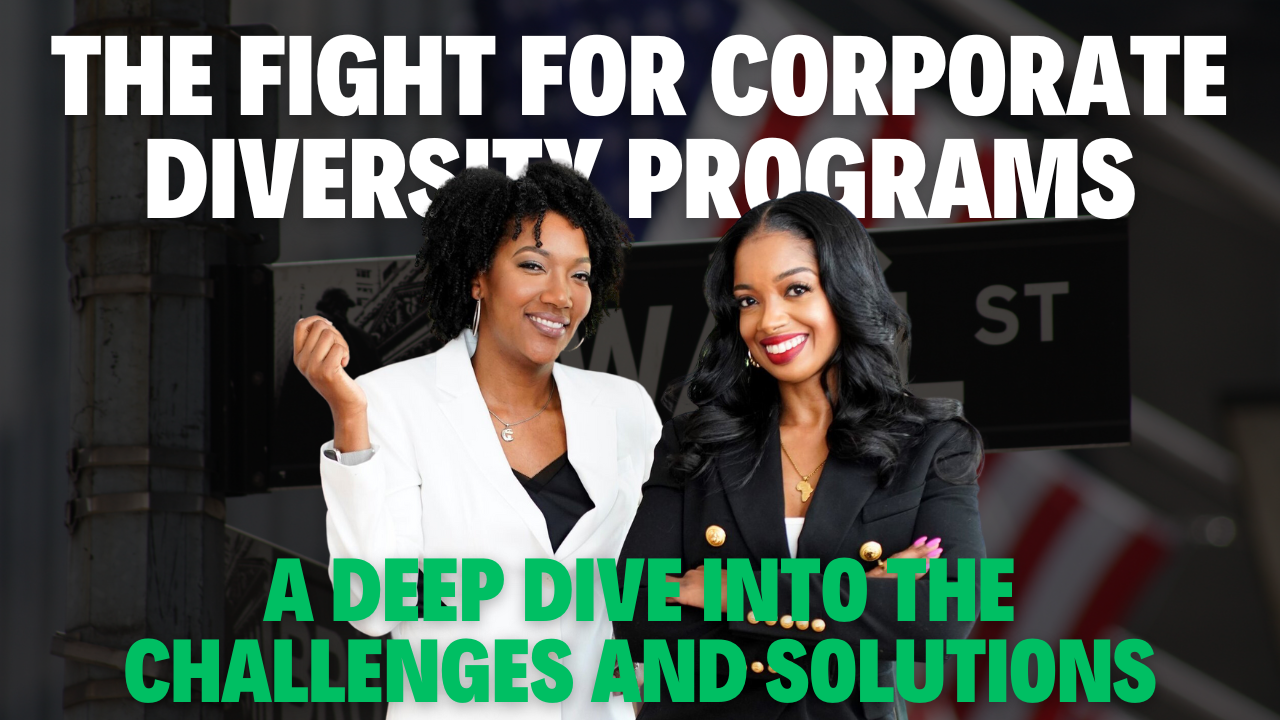The Fight for Corporate Diversity Programs: A Deep Dive into the Challenges and Solutions

In today's corporate world, diversity, equity, and inclusion (DEI) initiatives are not just buzzwords – they represent tangible efforts to rectify systemic imbalances and offer opportunities to marginalized groups. Yet, as recent events indicate, these programs are under threat, facing opposition on various fronts. The case of the Fearless Fund in Atlanta exemplifies the challenges and the broader issues at play.
Background: The Fearless Fund Lawsuit
The Fearless Fund, an Atlanta-based venture capital firm founded by Black women, is currently facing a lawsuit alleging racial discrimination for its grant program designed exclusively for Black women. But this isn't an isolated case. This lawsuit is a chapter in a broader narrative where affirmative action and corporate diversity initiatives are under siege.
Historical Context and Why It Matters
The recent pushback against affirmative action, especially the U.S. Supreme Court's decision against its use in college admissions, sets a concerning precedent. This backlash is particularly alarming when you consider historical funding discrepancies. Between 2009 and 2017, Black women entrepreneurs received a minuscule 0.0006% of all VC funding. To counter these disparities, platforms like the Fearless Fund have been critical, providing investment to over 40 companies helmed by Black, Latina, and Asian women.
Legal Landscape: A Rising Tide of Challenges
The assault on corporate diversity doesn't end with the Fearless Fund. The American Alliance for Equal Rights is at the forefront of this movement, targeting not just venture capital firms but also law firms and major corporations like McDonald’s and Target. These organizations are being sued for initiatives designed to bridge racial and gender inequalities.
The current legal assault against the Fearless Fund centers around the Civil Rights Act of 1866, alleging their grant program for Black women is discriminatory. Such lawsuits have tangible consequences. Organizations are becoming wary, often modifying their initiatives to sidestep potential legal pitfalls. This "adjustment" is often done out of caution rather than genuine wrongdoing, leading to what experts describe as the "chilling effect."
The Chilling Effect and Its Implications
The term "chilling effect" encapsulates the idea that organizations are changing behaviors out of fear of legal repercussions, not necessarily because they believe they're in the wrong. This cautious pivot from explicit diversity programs to ambiguous ones risks the core mission of these initiatives: addressing systemic inequalities.
Stacey Abrams, the former two-time Democratic nominee for Georgia governor, hits the nail on the head when she says these lawsuits are more about inducing fear and altering corporate behaviors than they are about pursuing genuine legal justice.
A United Front: Business Leaders & Activists Rally
Despite these challenges, all isn't bleak. Leaders from Fortune 1000 companies are proactively discussing protective measures against similar lawsuits, ensuring their DEI initiatives remain robust and effective. Furthermore, prominent figures and organizations, such as the Council for Economic Opportunity and Social Justice, are forming alliances to push back against these challenges.
Moreover, the public isn't silent. There's a palpable surge of support for the Fearless Fund and similar organizations. Initiatives to gather support through petitions, merchandise sales, and donations have been met with overwhelming positivity, proving that many believe in the importance of diversity initiatives.
Recommendations for Moving Forward
- Acknowledge the Importance: Recognize the crucial role of DEI programs in rectifying systemic issues.
- Legislative Support: Advocate for laws that defend corporate diversity programs.
- Strong Public Messaging: Continuously champion the economic and societal benefits of diversity.
- Stakeholder Collaboration: Establish regular dialogues with corporate leaders, activists, and venture capitalists.
In Conclusion
Diversity, equity, and inclusion remain essential in a rapidly evolving corporate landscape. While challenges persist, the rallying support from industry leaders, activists, and the public proves there's still a strong belief in the value of these programs. As we navigate this issue, it's crucial to ensure that these initiatives don't just survive but thrive, bringing about genuine change in the corporate world.